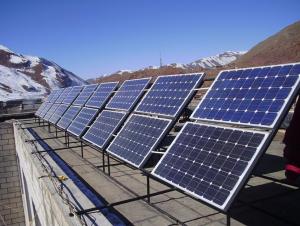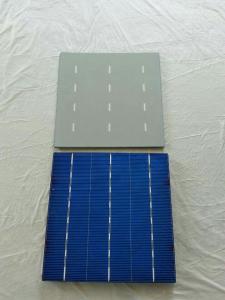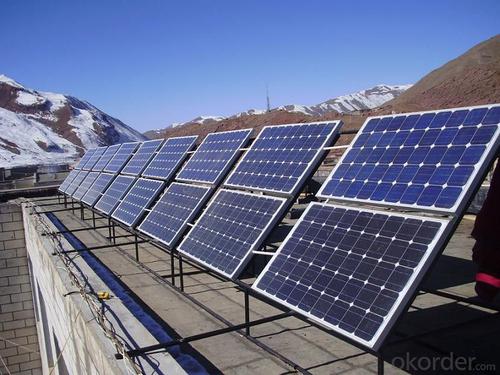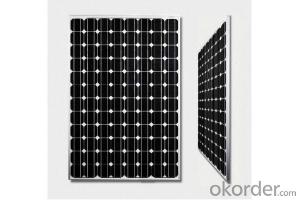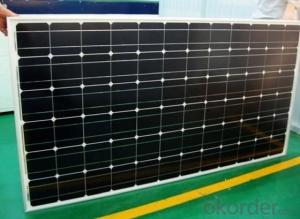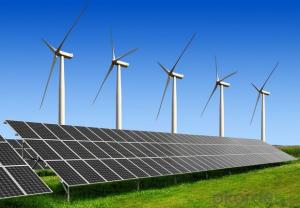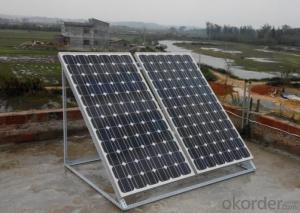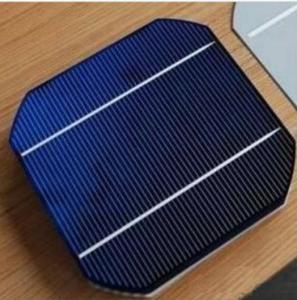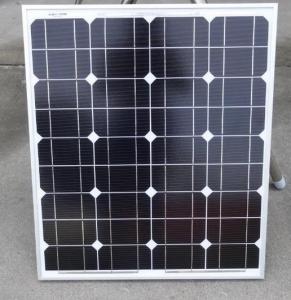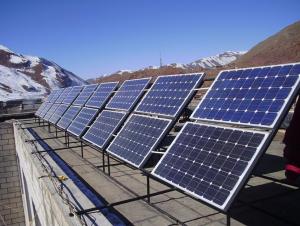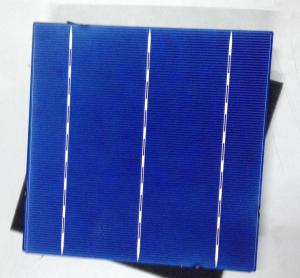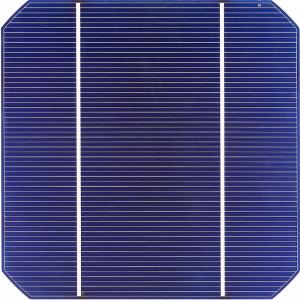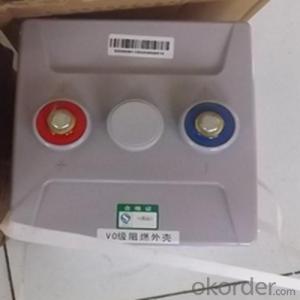Monocrystalline Silicon Solar Cell solar panel Good Quality and Price
- Loading Port:
- China Main Port
- Payment Terms:
- TT or LC
- Min Order Qty:
- -
- Supply Capability:
- -
OKorder Service Pledge
OKorder Financial Service
You Might Also Like
Quick Details
| Material: | Monocrystalline Silicon | Character: | solar panel price | Silicon: | Grade A class |
| EVA: | Material | ||||
Packaging & Delivery
| Packaging Detail: | carton package |
| Delivery Detail: | 20days |
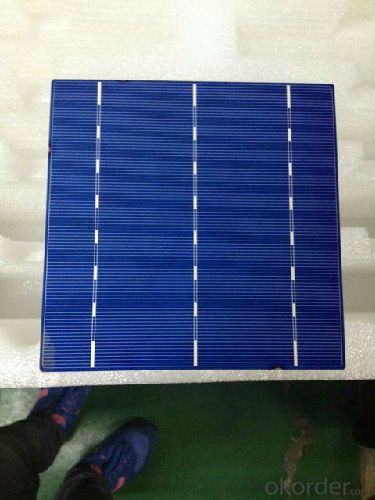
Specifications
monocrystalline solar panel
1.Good quality silicon cell
2.monocrystalline silicon
3.solar module with 2.27 current .5kg
Mono-crystalline silicon cells are the most efficient but also the most expensive type of solar panel. Made from single crystals of silicon, these cells capture 15% of the solar energy that shines on it.
Poly- or multi-crystalline silicon cells are made from silicon cut into very thin strips. They are less efficient than mono-crystalline cells, but are also slightly cheaper to buy.
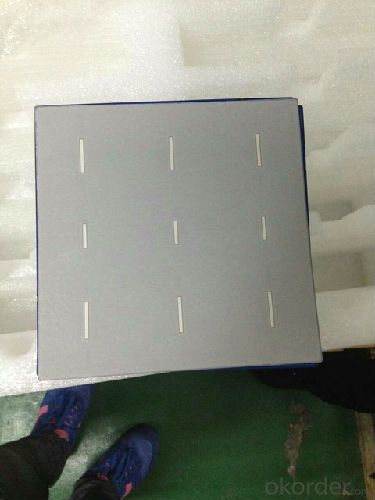
- Q: Can solar cells be used to power water purification systems?
- Yes, solar cells can be used to power water purification systems. Solar cells convert sunlight into electricity, which can then be used to power various devices, including water purification systems. This allows for a sustainable and environmentally-friendly solution to provide clean and safe drinking water in areas without access to electricity grids.
- Q: How to define the poly solar cells as the A Grade one?
- It is hard to tell if the poly solar cells you bought has no certificate, ganratees.
- Q: Can solar cells be used to power large-scale industrial facilities?
- Yes, solar cells can indeed be used to power large-scale industrial facilities. With advancements in solar technology and the availability of more efficient and cost-effective solar panels, industrial facilities can harness the power of the sun to meet their energy needs. Large-scale solar installations, such as solar farms or rooftop arrays, can generate substantial amounts of electricity, making them a viable option for powering industrial operations. Additionally, integrating solar power into industrial facilities can reduce greenhouse gas emissions, lower energy costs, and provide a more sustainable and reliable energy source.
- Q: Can solar cells be used in telecommunications systems?
- Yes, solar cells can be used in telecommunications systems. Solar cells are capable of converting sunlight into electricity, which can power various telecommunications equipment such as base stations, repeaters, and remote monitoring systems. This allows for reliable and independent power supply in remote areas or during power outages, making solar cells an energy-efficient and sustainable solution for telecommunications systems.
- Q: Can solar cells be used for hydrogen production?
- Yes, solar cells can be used for hydrogen production through a process called electrolysis, where the electrical energy generated by the solar cells is used to split water into hydrogen and oxygen. This method, known as solar water splitting, offers a sustainable and renewable way to produce hydrogen without carbon emissions.
- Q: Can solar cells power an entire house?
- Yes, solar cells have the ability to power an entire house. With advancements in technology, larger and more efficient solar panels are being developed, which can generate enough electricity to meet the energy needs of a typical household. However, the capacity of solar cells to power an entire house also depends on factors such as the size of the house, the number of solar panels installed, the amount of sunlight available in the area, and the energy consumption habits of the residents.
- Q: How efficient are solar cells?
- Solar cells are highly efficient at converting sunlight into electricity, with the average efficiency of commercial solar panels ranging from 15% to 20%. However, advancements in technology have led to the development of more efficient solar cells, such as multi-junction cells, which can achieve efficiencies of over 40%.
- Q: Can solar cells be used in agricultural irrigation systems?
- Yes, solar cells can be used in agricultural irrigation systems. Solar-powered irrigation systems use solar panels to convert sunlight into electricity, which can then power pumps or other irrigation components. This renewable energy source can help reduce reliance on fossil fuels and provide a sustainable solution for irrigation in agricultural settings.
- Q: Can solar cells be used in telecommunications?
- Yes, solar cells can be used in telecommunications. They can power various devices and infrastructure in remote areas where access to electricity is limited or non-existent. Additionally, solar cells can also be used to provide backup power in case of grid failures or emergencies, ensuring uninterrupted communication services.
- Q: What is the impact of snowmelt on solar cell efficiency?
- The impact of snowmelt on solar cell efficiency is generally positive. When snow covers solar panels, it reduces their ability to generate electricity due to the lack of sunlight reaching the cells. However, as the snow melts and slides off the panels, it allows for maximum exposure to sunlight, thus improving the efficiency and energy production of the solar cells.
Send your message to us
Monocrystalline Silicon Solar Cell solar panel Good Quality and Price
- Loading Port:
- China Main Port
- Payment Terms:
- TT or LC
- Min Order Qty:
- -
- Supply Capability:
- -
OKorder Service Pledge
OKorder Financial Service
Similar products
Hot products
Hot Searches
Related keywords
